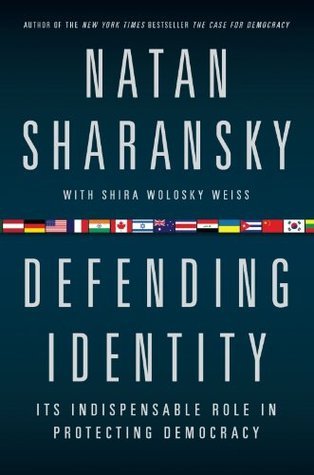What do you think?
Rate this book


In a vigorous insightful challenge to the left and right alike, Natan Sharansky, as he has proved repeatedly, is at the leading edge of the issues that frame our time.
306 pages, Kindle Edition
First published April 1, 2008
…the best defense of the free world will come from those who cherish a unique way of life, for they will always have a life truly worth defending.
Democracy asserts the value of freedom; identity gives a reason for freedom… At stake is not only what your life is like but what your life is for… Without identity, a democracy becomes incapable of defending even the values it holds most dear.